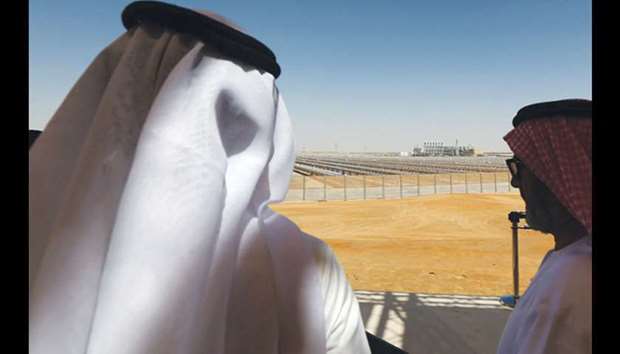Islamic finance is increasingly being discovered as a vehicle to support sustainable development goals by investments in environmental projects, as well as to deal with challenges of poverty, social inequality and financial exclusion, a method called “impact investing.”
To that end, the Islamic Development Bank (IDB) and the Istanbul International Center for Private Sector in Development of the UN Development Programme launched the “Global Islamic Finance and Impact Investing Platform,” an institution which seeks to build collaborations between a multitude of stakeholders, including Islamic banks and Islamic finance institutions, that engage in developmental investments in accordance with the United Nation’s 2030 Agenda for Sustainable Development.
Both institutions last week allowed a glimpse into the role Islamic finance can play in this process through the launch of the new report “I for Impact: Blending Islamic Finance and Impact Investing for the Global Goals.” In short, the report sheds light on the potentials of Islamic finance in impact investment for the achievement of sustainable development goals.
The basic idea is that ethical, environmental and socially responsible values within finance and business are considerations that are deeply rooted in Islamic theology and jurisprudence. Thus, it is no wonder that developmental institutions like those mentioned above are looking for ways to tap into Islamic finance as the industry itself seeks new areas of growth, rightfully arguing that socially responsible investments, as well as ethical and “green” financial products can benefit from the Islamic beliefs and teachings pertaining to the environment and social development.
“Islamic finance and impact investing are both based on ethical and social criteria and emphasise inclusiveness,” said Professor Mohamed Azmi Omar, director general of the IDB’s Islamic Research and Training Institute, at the presentation of the report, adding that “one of the key aims of the report is identifying areas of convergence of the two sectors and to develop collaborative strategies for achieving the global development agenda.”
The idea of blending Islamic finance with impact investing is that both are value-based investment structures through which investors associate themselves with a moral purpose, namely the principle “doing good and avoiding harm to others,” which constitutes the main underlying ethical principle of Islamic finance.
Furthermore, the reasoning is that such ethical and sustainable investment products can tap a wider range of demand if they are made Shariah-compliant to appeal to Muslims. At the same time, non-Muslims – who might normally avoid Islamic investments products owing to their perceived higher complexity and pricing – may embrace them if they are designed for an ethical purpose.
In fact, the concept is not new, but is hasn’t unlocked its full potential yet. As in many other aspects of Islamic finance, Malaysia was the first to announce guidelines for the issuance of socially responsible sukuk as early as in 2014, which were aimed at helping companies raise money for projects ranging from renewable energy to affordable housing. Meanwhile, Islamic finance companies from the UK, Canada, Hong Kong and some Gulf Cooperation Council countries, namely the UAE and Saudi Arabia, jumped upon the bandwagon of impact investing through Islamic finance.
In particular, the latter two countries embraced the idea of green sukuk after they set ambitious clean energy and energy efficiency targets for their economies.
Apart from environmental-conscious investments, Islamic finance could also play an important role in alleviating global poverty and reducing inequality given that fact that IDB member countries account for 40% of the world’s poor. Useful instruments in this case are Islamic microfinance solutions, as well as a better utilisation of waqf, charitable endowments under Islamic law, and zakat, donations to the poorer part of the population by those with sufficient means. Islamic finance can also be used to fund new, innovative solutions to help build inclusive financial systems which actively integrate parts of a population which are either directly or indirectly kept out of the formal financial sectors and whose numbers are particularly high in less wealthy Muslim nations in the Middle East, North Africa and Central and East Asia. Such innovations could be mobile banking and payment systems for Islamic finance, entrepreneur and startup financing, as well as the provision of basic tools for business planning and accounting for small businesses to help create employment and a better integration in society.

Emarati men stand on a balcony overlooking the Shams 1, Concentrated Solar power (CSP) plant, in Al-Gharibiyah district on the outskirts of Abu Dhabi (file). The UAE and Saudi Arabia, in particular, have embraced the idea of green sukuk after they set ambitious clean energy and energy efficiency targets for their economies.


